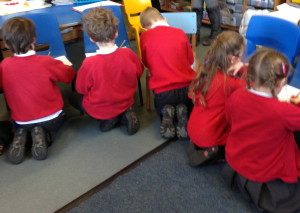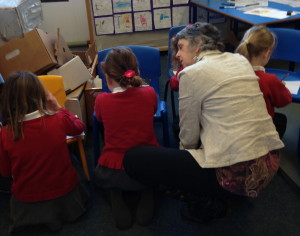We are often asked for suggestions for books to use for philosophy with children. There are so many! Often it is not necessary to go out and buy special books there will no doubt be several in the classroom that are suitable.
Having said that, one book we have used several times recently is Croc and Bird by Alexis Deacon ISBN987-0-091-89332-3 and published by Hutchinson. A thought provoking story of a crocodile and a bird hatching together and living together until the time they come across other crocodiles and birds – then they realise their differences. Do give it a try!

